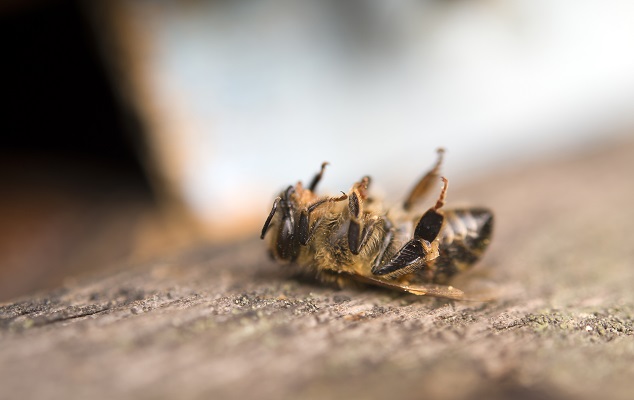Argentina Loses Around 30 Percent of Honey Bee Population Yearly
January 29, 2019
As per the Center of Investigation on Social Bees (CIAS), despite being the world’s second largest honey producer, Argentina’s honey bee population is dying at a roughly 30 percent rate every year. As well, 2018 proved how much the Argentine economy depends on exports and crops, as recent terrible droughts caused it to lose seven billion U.S. dollars, pushing it further into economic crisis. Given that Argentina, according to the Food and Agricultural Organization (FAO), is the world’s third-largest honey exporter—and its honey production has declined massively—this could lead to serious negative consequences for the economy.
Walter Farina, an investigator, stated this decline was likely the result of agricultural fertilizers and other chemicals, which can greatly disorientate honey bees. “Some herbicides—like glyphosate—have a negative effect on the bees,” Farina said. “It makes it difficult for them to learn a floral scent and then link it to a determined food, or to learn how to navigate in a new environment, or to develop themselves in the initial stages.” CIAS co-director and biologist Martin Eguaras agreed, saying some of these chemicals that are used for stimulating plant growth and killing pests are contaminating.
“There are some agricultural chemicals used in our country that are illegal in Europe, because they have been proved to kill bees in flight,” Eguaras said, adding the declining bee numbers may also be the result of “parasites which have become more aggressive due to the abuse of agricultural toxins which put the bees under stress, lowering their defenses and causing illnesses to affect them more.”
However, declining bee populations won’t just affect honey production, as bees are essential for pollinating countless crops and plants, including 70 out of 100 crops that feed roughly 90 percent of this world’s people. “Bee populations and natural pollinators are in decline, and this is a worldwide problem,” says Eguaras. As a way of responding to the issue, Argentine citizen Matias Viel started BeeFlow, a business aiming to utilize science to improve the bees’ pollination capacities while also halting their declining numbers.
Viel started this project with Dr. Agustín Saez and Dr. Pedro Negri, who are bee health experts and researchers with CONICET, an Argentine research council. “In Argentina, the opportunity to mutually benefit between crop production and honey production is being wasted,” Viel said. “On the one hand, farmers don’t use bees efficiently to maximize the quantity and quality of crops, and on the other hand, beekeepers are focused on producing honey, not on providing high quality pollination services.”
BeeFlow started in 2017, with the hope making a difference in how both beekeepers and farmers view the honey bee’s role, highlighting the crucial role they play in food cultivation for Argentina and the rest of the world. “The aisle at the supermarket without bees would have 50 percent less fruit,” Maria Alejandra Palacio, the National Beekeeping Programme’s coordinator, said. “Even to produce beef requires the animals to be fed on plants, whose cultivation requires pollination.”
Photo By perutskyy


.jpg)



